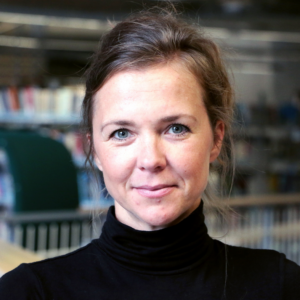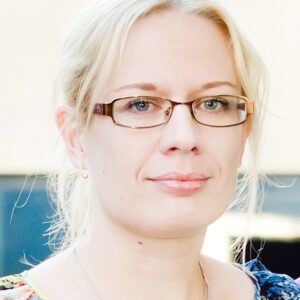Photo by Philipp Katzenberger on Unsplash
Interdisciplinary research group: Digital learning ecosystems
The research group's core members Kai Pata and Terje Väljataga have 30 years of experience in digital learning ecosystem design and research. Now we pursue exploring new socio-technical learning ecosystems and learning settings with disruptive technologies particularly in formal higher and vocational education, in informal workplace learning and in smart non-formal learning ecosystems.
The team members are from School of Educational Sciences, School of Digital Technologies, and we partner with the immersive learning technology team of Estonian Academy of Security Sciences who have ample testing grounds with disruptive technologies in a vocational higher education context.
Our conceptual research focuses on ecological learning design principles. The distributed cognition model applications in socio-cultural context permit new ways of understanding learning in socio-technical systems. The reconceptualization of scaffolding in disruptive environments (in immersive learning environments and socio-technical smart learning ecosystems) is one of the central topics we see worthy of exploration.
We are also concerned for value-driven approach to digital learning ecosystem design.
Thus we look for inclusievness, active participatory citizenship and sustainability as values in learning ecosystems.
Research focus: Disruptive learning in technology enhanced environments
Emerging technologies - artificial intelligence, virtual reality, extended reality, augmented reality, chatbots, gamified learning, data-driven learning in socio-technical systems - are able to trigger profound changes and disrupt existing structures and norms, others not. To disrupt means “to prevent something, especially a system, process, or event, from continuing as usual or as expected”. We see that digital transformation in society is able to disrupt learning and teaching processes. The technology progress has been faster than the educational practices with technologies, and knowledge about the impacts of learning with new technologies is lagging behind. Disruption is usually perceived as a negative occurrence triggered by outside factors (Boucher et al., 2020). Our research group provides evidence based answers about learning effects and values that relate with new technologies in learning to increase the consciousness to make wise decisions in education and have more control over disruptive effects of digital transformation in the society.
The research group has the following goals:
- to describe the disruptive learning effects that digitally enhanced learning environments bring along to learning and teaching
- to promote the value based approach in learning environment design, and to explore the values perspectives regarding disruptive technologies for learning
The running projects:
- European commission funded project eDiploma
The e-diploma project will establish e-learning posing the use of Augmented Reality/Virtual Reality, Artificial Intelligence (Machine Learning/Deep Learning), Interactive Technologies, chatbots and gamification in a newly designed e-learning platform. The project tests out eDiploma solutions in higher and vocational education institutions. It explores learning effects and the value dimensions of disruptive technologies on learning.
Theoretically applying ecosystemic approaches to designing learning systems in the society is central in our R&D projects that consider digital divide and inclusiveness. We have modelled capacity building in academic studies context and are applying these practices in digitally enhanced learning ecosystems.
- Erasmus+ funded project GOT - Building Capacity for Online Tuition in Ghana
The project thus intends to cause a shift towards data-driven and evidence-based methods of providing digital education at Ghanaian universities UCC and UEW, changing the thinking of researchers, educators and digital solutions providers.
- Erasmus+ funded project DigiTED
DigiTED project intends to promote and facilitate digitalisation among teacher educators in Europe (and beyond). In the duration of the project, the project team follows up and innovatively connects, exploits and rethinks what has been developed thus far in regard to promoting digitalisation among teacher educators on different levels and addresses the diverse needs among teacher educators.
- Erasmus + funded project WINnovators
WINnovators co-develops and implement innovative teaching and learning approaches to concrete policies for capacity building in the digital, entrepreneurial, STEM/STEAM innovation and sustainability fields, from which young women from rural areas and Higher Education students would benefit.
The project has developed gamified Winnovator space https://winnovators-space.eu/ and tests it out in case studies with rural communities.
Members of the group
Tallinn University:
We are in research collaboration with Estonian Academy of Security Sciences working group:
Videos
Scaffolding in socio-technical systems
Ecological learning design
Citizen science: cultural data exploration in city space
Citizen science crowdsourcing tracks













